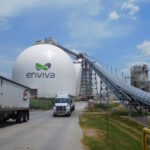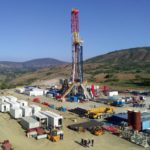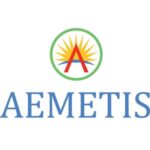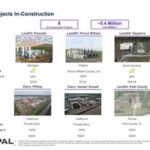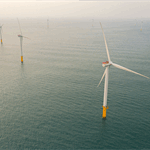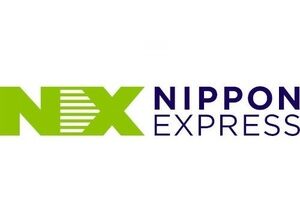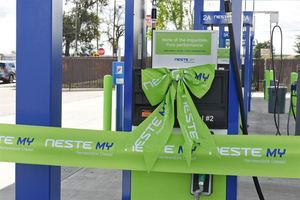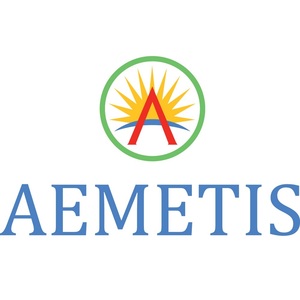Aemetis reports progress with RNG, SAF and ethanol projects
Energy Disrupter
ADVERTISEMENT
Aemetis Inc. released second quarter financial results on Aug. 3, reporting progress with the development of its dairy renewable natural gas (RNG) project and its proposed renewable diesel and sustainable aviation fuel (SAF) biorefinery. The company also highlighted its existing ethanol and biodiesel operations.
Aemetis Biogas has already built and is operating seven dairy digesters, 40 miles of biogas pipeline, a central biogas-to-RNG production facility, and an PG&E utility gas pipeline interconnection unit, said Eric McAfee, chairman and CEO of Aemetis, during the company’s second quarter earnings call. The company recently closed on a $25 million USDA loan guarantee to build an additional eight dairy digesters. McAfee said these 15 facilities are expected to produce a combined 400,000 MMBtus of RNG annually.
The company plans to continue to grow its RNG operations. According to McAfee, Aemetis Biogas has signed agreements to build biogas digesters for 37 dairies and plans to build digesters for 65 dairies as part of its five-year plan. He said that an additional $75 million of USDA guaranteed project funding is in process to support the company’s biogas projects. In total, Aemetis Biogas plans to receive $125 million in USDA loan guarantees under the Rural Energy for America Program by the end of this year.
Andy Foster, president of Aemetis Advanced Fuels and Aemetis Biogas, said the company recently received its default -150 grams of CO2 equivalent per megajoule (gCO2e/MJ) carbon intensity (CI) pathway approval for four dairies to begin generating California Low Carbon Fuel Standard credits and expects two more approvals in the coming weeks. While Aemetis awaits approval of those proposal LCFS pathways, the company is storing its RNG underground. In addition, Aemetis is working to secure pathways that more accurately characterize the CI of its RNG, which Foster said the company expects to be in the -415 gCO2e/MJ range.
Plans for the proposed renewable diesel and SAF biorefinery are also moving forward. McAfee said Aemetis has nearly completed the two primary permits for the construction of the 90 MMgy Riverbank project. The conditional use permit and California Environmental Quality Act approval allowing the use of the 24-acre site for construction of the Riverbank project was posted for public notice and is expected to be approved during the next month, according to McAfee. The authority to construct air permit is expected to be approved by the end of September and the project is on track to allow project financing to close early next year, he added.
Aemetis is also developing a proposed carbon capture and storage (CCS) project that would capture and store CO2 produced at both the proposed Riverbank facility and the company’s existing corn ethanol plant in Keyes, California. McAfee said that Aemetis’ CCS business was recently awarded a CO2 characterization well permit, the first ever issued by the State of California. The well site access road and drilling pad have now been engineered, permitted and constructed. Data gathered through the characterization well will be used to secure a Class VI injection well from the U.S. EPA.
Foster also discussed operations at the existing Keyes corn ethanol plant during the second quarter earning call. He said the facility completed an extended maintenance and upgrade cycle during the first quarter and a portion of the second quarter of this year. That extended upgrade shutdown helped the company avoid significant losses during the quarter due to extraordinarily high natural gas prices. It will also help the plant avoid future shutdowns that would have been required to install key components of its energy efficiency upgrades.
The Keyes plant restarted in late May and has ramped up production during June and July, Foster said. Once the energy efficiency and carbon reduction projects are complete at the facility in 2024, Aemetis expects natural gas usage at the Keyes ethanol facility will be reduced by 80 percent or more. These projects include the installation of a solar microgrid, a mechanical vapor recompression (MVR) system, an all-electric Mitsubishi Zebrex dehydration unit and the installation of an AI-enabled decision control system (DCS).
Aemetis also operates a biodiesel plant in India. According to McAfee, $33.5 million of biodiesel contracts were fulfilled by the company during the quarter. In the future, Aemetis plans to export refined tallow from the India facility to renewable diesel producers in the U.S. McAfee said the project is making steady progress with final negotiations underway for storage tanks at two California ports. The company is also in active discussions with several potential biorefinery customers.
Aemetis reported revenues of $45.1 million for the second quarter, down from $65.9 million during the same period of last year. Gross profit was $2 million, up from $200,000 during the second quarter of last year. Operating loss was $7.8 million, compared to an operating loss of $7.7 million during the second quarter of 2022. Net loss was $5.3 million, compared to a net loss of $209,000.


